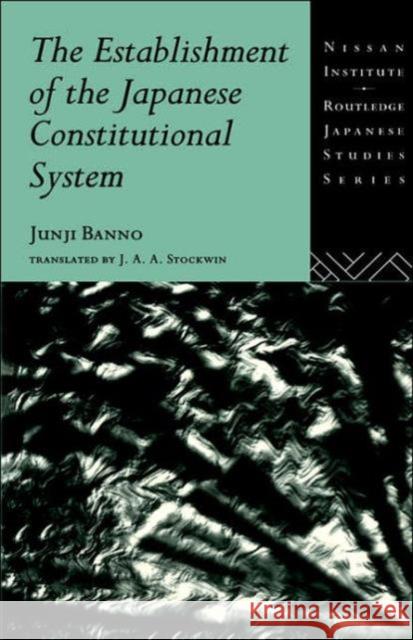The Establishment of the Japanese Constitutional System » książka
The Establishment of the Japanese Constitutional System
ISBN-13: 9780415004978 / Angielski / Twarda / 1992 / 268 str.
Between 1868 (when it came to power) and 1890, the Meiji Government wielded despotic power, and was able to strengthen the military and promote industry for as long as its finances permitted. After the Diet (parliament) was established, however, the Government found itself facing challenges to this policy from the popular parties. The parties demanded that government expenditures and the burden of tax falling on the farmers should be decreased. They also demanded that despotic government should be replaced by party cabinets. But by 1900 one of the most popular parties had given up its demand for tax reduction, and begun to support the government policy of industrialization. At the same time, one faction of the oligarchic Government changed its attitude towards political parties. Why and how such a drastic change in basic attitudes should have taken place during the first decade of Japanese parliamentary politics presents us with a fascinating series of questions. To answer these questions, the book analyzes the constitutional framework and the economic interests of the parties' key supporters, namely, agricultural landowners."











